The Paramount Importance of Safety Management in Aviation
Other · 3 min read
Whether you are planning a trip or just dreaming of one, check our recommendations for the best airlines to fly to Japan!
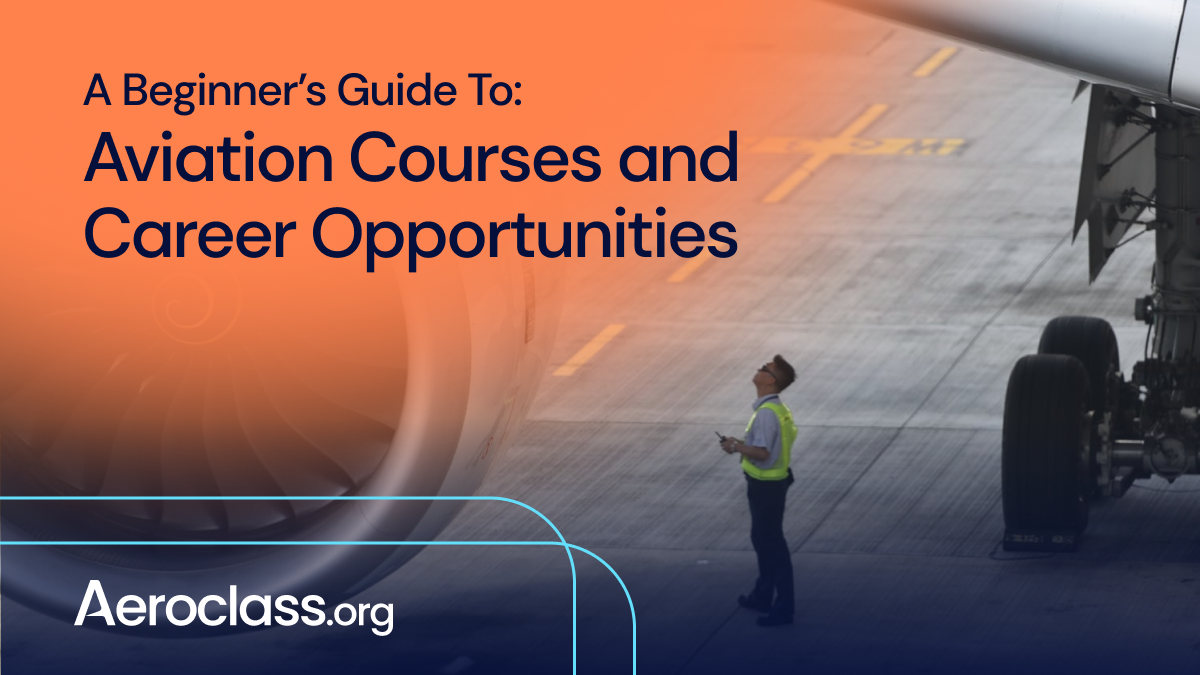
Aviation courses are a great way to open the doors of the aviation industry and also escalate when you are already in it. Keep in mind that this is a vast industry and offers many different alternatives to building a professional aviation career.
However, while very rewarding, an aviation career can also be challenging. Fortunately, there is also a wide variety of free aviation courses you can take to cope with those challenges and prepare for those yet to come.
Of course, you need to have the correct information about what course option is best for you to achieve your objectives. So, we invite you to keep reading and let us give you all the details you need to make the wisest decision.
Yes, a career in the aviation industry is a promising one.
For example, you can get paid to travel worldwide if you become part of the cabin crew, but aviation can offer you more than that.
The aviation industry covers all things related to air transportation and supporting activities that include but is not limited to:

As it happens in many other industries, as you escalate within an area of the aviation industry, you can get to top executive positions, often called aviation management positions.
At this point, you will be in charge of leading the business, an entire organization, or a department within an organization. And it could be in any of the areas mentioned above. For example, if you love building things, you could see yourself leading a team of designers as the manager of an aircraft manufacturer.
To reach these levels, you will need the proper knowledge and training. Becoming a good leader in a constantly changing environment does not happen overnight. Fortunately for you, there are great aviation courses that can provide you with all you need to be that leader you have always wanted to be.
As we mentioned before, there is a wide variety of aviation courses, and each course is different and has its specific requirements.
That said, it is relevant to mention the most valuable skills you will need to complete aviation courses and build your career in the aviation industry.
Considering the type of roles found in the aviation industry, we can summarize the most critical skills in the following list:
Not many could argue that the ability to keep calm and think clearly under the most challenging circumstances is also essential, especially when speaking about the role of a pilot. Also, other roles within aviation may require having some knowledge about laws and finances. Nevertheless, the list is trying to bring light to what any role within the industry could need, from an air traffic controller to a customer service assistant or an aviation safety manager.
Unfortunately, there is no simple answer to how long it will take you to complete an aviation course. Different aviation courses have different timeframes, and it will also depend on how much time you can dedicate to going through the course.
Of course, when speaking about degrees from a college or university for aviation that could open some doors for you in the industry, it is easier to give you those timeframes. Usually, undergraduate degrees take around four years to complete, and graduate degrees like a master’s take around two years.
The good news is that many certification courses most employers require are not that long. Some of our most specific courses take months, a couple of weeks, or even a couple of hours. So, your options are still outstanding.
You can take some courses at your own pace, so it is up to you to decide how long it will take.
Now that you know what is required and the areas for aviation courses you can take, it is time to show some specific courses and what they offer for your career in the aviation industry.

Finding the best aviation course for you can be daunting with the wide variety of courses and areas to cover in the aviation industry. This is why we want to explain each area or topic for you to understand where you will be applying the knowledge in aviation and point you to some examples associated with those areas or topics.
The main intention of these aviation courses is to teach the course taker the most fundamental aviation concepts. They can have either a scientific focus as an introductory course for aerospace engineering students learning about aircraft systems or a more administrative approach like teaching the regulations imposed by the Federal Aviation Administration (FAA) and other authorities around the world.

Probably the first thing that comes to anyone’s mind when speaking about aviation courses is flight training. However, a commercial pilot needs to learn many other things before flying a fixed-wing aircraft or any other aircraft for that matter.
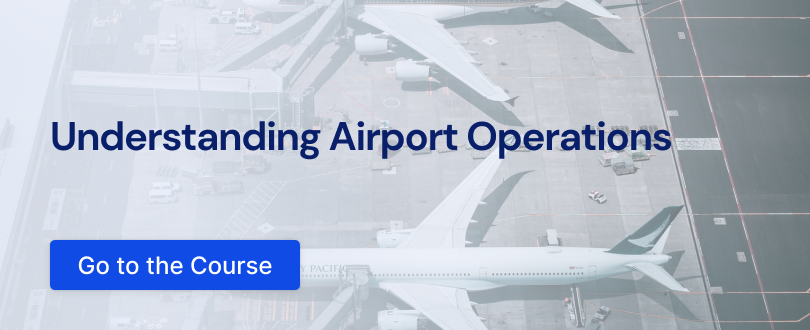
For example, they need to learn how to communicate with air traffic control, and they also need to know FAA regulations and the general rules related to aviation safety.
Also, there are different certifications for different levels like private pilot certificates and flight instructor certificates. And you also need to take several other courses if you want to become a certified flight instructor, for example.
Common topics in these courses include aerodynamics, meteorology, and instrumentation, among others.
We mentioned above that basic aviation courses are often introduced to aerospace engineering students. Therefore, aerospace engineering can be considered an aviation course in aeronautics.
All courses falling in this category will provide you with the knowledge and skills required to design and manufacture aircraft. You will learn about aerodynamics, mechanics, maintenance, and others.
It takes more than knowing the aviation safety regulations to guarantee that the operations and people involved are safe. So, the courses in this category will offer all you need if you want to be a safety expert.
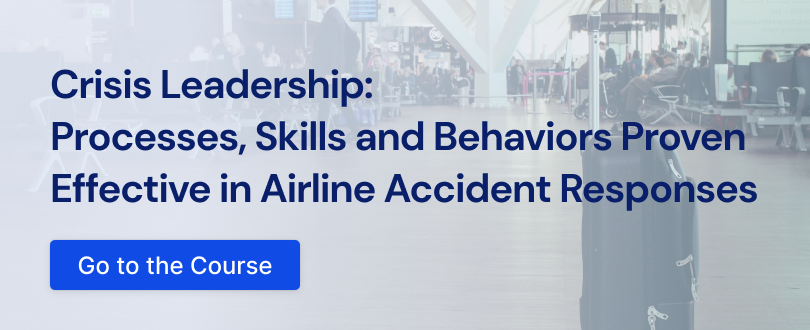
You will be gaining knowledge and skills regarding the safety of an aircraft in flight and the security at the airports. Apart from the regulations and procedures, you will be learning about flight systems management and how to react to any emergency. Also, leadership skills are covered since it is crucial to learn how to lead in a crisis to give an adequate response in case of an accident.
Meteorology is used in many different areas of life. We often try to understand the basic concepts to be able to know whether we need to come out with an umbrella or not, for example. However, understanding and using meteorology for aviation is a particular one.
On one side, pilots need to understand the reports from air traffic control to take the corresponding measures during a flight, including takeoff and landing. Also, they need to identify possible changes while in flight to report those changes back to air traffic control to receive further instructions.
As you can see, communication skills are also necessary; meteorological knowledge alone is not enough.
Although aviation involves more than air travel, airlines are indeed at the core of the business. Airline operations are essential for aviation, so these courses will help you get plenty of opportunities.
Airline operations involve business strategies, flight schedules, aircraft leasing, and customer support, among many other aspects. So, you can expect to learn about these topics in this kind of course.
Another critical aspect of an airline’s operations is its finances. Managing finances properly by controlling their expenses and optimizing their income is a must for success.

You may want to consider that airline operations may be part of other courses such as those related to managing other aviation aspects like airports and safety. If you would like to escalate to management positions, maybe taking one of those courses will be better, and you could still start your career in airline operations.
Among the operations of an airport, ground operations are at the top of the list. As such complex environments, airports require professionals to help them meet strict regulations and guarantee safety and security while running their business. And ground operation professionals are vital to achieving it.
The knowledge you will get is related to those regulations and the procedures to comply with them, among other things. With this knowledge, you will work on the runways and behind the scenes of the spectacle an airport can be.
This is a significant area of the business. Without the proper ticketing and pricing, an airline could go bankrupt in a short time. If a business is your thing, perhaps this is an area where you can find the right course for you.
Courses in this category will teach you the basic principles of an airline’s business. Still, they will also prepare you to deal with unexpected situations where these principles are not applicable.
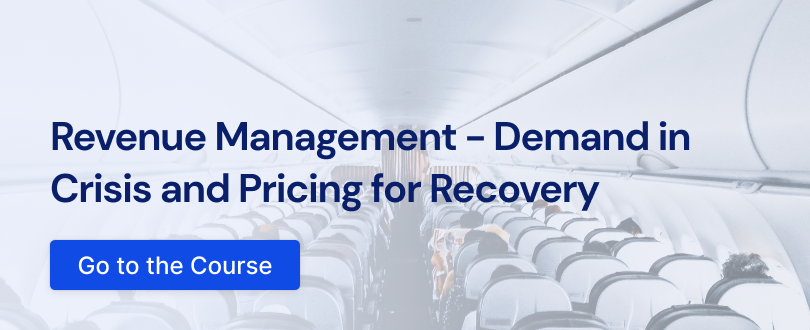
Common topics may include how to price available seats and other services for the passenger dynamically to improve profitability by matching the offer with the needs of each passenger.
Apart from working for an airline, taking these courses can open doors for you to work in travel agencies.
Some people may forget that sales and marketing are significant for aviation. This is a very competitive industry, so outmatching the competitors in these areas is vital for any aviation company.
To learn sales and marketing concepts and apply them to aviation, you will get courses covering market research, consumer trends, and marketing channels. With the current pandemic situation and the fear it created in people regarding traveling, it would be good for you to find a course that teaches you how to get customers to be confident again if you are interested in developing your career in this area of aviation.
Air navigation is at the core of aviation. This refers to how aircraft move around specific airspace and how those movements should be managed for safety and efficiency. These courses are essential for air traffic control. Still, they are also added as modules to other courses for professionals that need to understand how flights are managed while on the air, including operations and safety managers.
Typical topics covered in these courses include reading navigation maps and communicating meteorological information or any other kind of instructions.
The courses mentioned in the previous point can lead you to certification in this area. If you want to become an air traffic controller, you may start by taking one of the courses focused on air navigation and then move forward to a certification program.
However, you may want to keep in mind that some certification programs are more comprehensive and include air navigation modules. Yet, taking one of the courses described in the previous point could help you ensure air traffic control is for you before getting into a certification program that could be longer and more expensive.
Airport management is a cornerstone for aviation. Not having airports operating properly would be a disaster for the industry. Therefore, here you will find great courses on topics beyond operations, such as airport planning and airport safety.
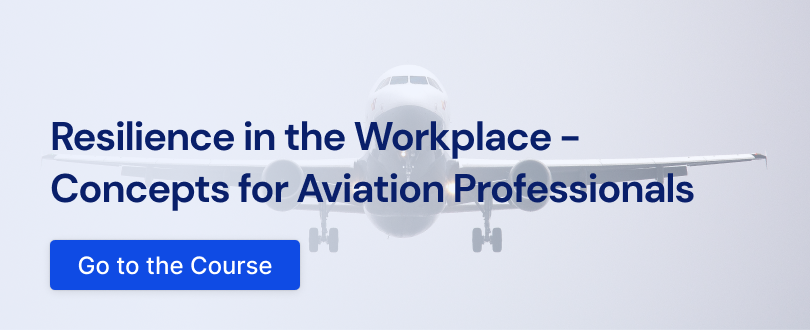
Airport planning is not limited to making sure flights depart and arrive according to schedule. It also involves other areas requiring proper planning, such as gate allocation and seasonal demands, among others.
Speaking of airport safety, the need for experts in this area has been increasing lately, especially now that the health and safety requirements have become very strict due to the pandemic.
Moreover, controlling passenger traffic is critical for airport security. Therefore, learning about the infrastructure and systems required for checking travel documentation is part of the courses you will find in this category.
The common knowledge gained from courses in this focus area includes strategic management, airport regulations, working with suppliers, and leadership.
Within this area, you will find courses that provide students with the knowledge required to take over top companies in the aviation industry. This means that you will gain the skills to lead different departments across an airline, an aircraft manufacturing organization, or any other organization that makes a living in the aviation industry.

Topics covered in these aviation courses usually include the so-called soft skills we mentioned in the list above and human resources and business administration topics. Perhaps, learning about the economics of air transport could also be useful if you are interested in this area of aviation. Also, they should teach you how to deal with organizational culture and how to handle difficult situations like the environmental challenges that are putting pressure on the industry.
Moreover, these challenges require innovation in aviation, which is why an aviation manager needs to learn about things like digital transformation, trends and opportunities for the future of the general industry, and resilience applied to aviation. Make sure the course you take in aviation management covers at least one of these topics.
At this point, you should have a better idea of what an aviation course involves. However, if you still have any doubts, we have decided to share some of the most common questions people ask.
The top leading courses are Aircraft Maintenance, Airport Commercial Management, Cabin Crew, Emergency Planning Management, Pilot Training, and Security Management.
Deciding which is the best course in aviation is up to you and your career goals. So far, we have given you a great deal of information to make an informed and smart decision.
However, there is more for you to consider, such as your current set of skills, the prospects to land a job quickly, and how much time and money you are willing to invest.
Speaking of money investment, the cost of an aviation course can be very variable. This depends on many different aspects such as the course provider, the course’s level, and the course’s scope, among other things. To give you an idea, our courses range from $99 to $979, but a university degree can cost thousands of dollars.
Once more, where you can work after finishing your aviation course will depend on the kind of course and the area covered by the course. You could end up working for an airline, a maintenance service provider, an aircraft manufacturer, or an airport, among other organizations.
The salaries for positions in aviation vary based on the employer, the level of the position within the organization’s hierarchy, and the experience required, among other aspects. For illustration, according to some research, average salaries range from $49,700 to $195,600.
Probably the most important factor would be reliability. You want to make sure the course provided is known across the industry, and the instructors are knowledgeable and have the experience in the area of aviation covered in the course you want to take.
Another important factor would be accessibility. Not all aviation programs will be available near you, so you may want to consider platforms like aeroclass.org that provide students with the possibility of learning from anywhere at any time.
We are glad you have read to this point and hope this information helps you choose the best aviation course for you. Here at Aeroclass.org, we pride ourselves on offering fascinating aviation courses to either launch your career or make it evolve to the next level.
Our courses cover many of the different areas we mentioned above, from entry-level to more advanced programs. We are sure you will find what you need. And we are constantly working on updating and expanding our offer, so we invite you to check it periodically to avoid missing any new addition.
Moreover, our instructors are experienced instructors from a cross-section of industry-specific disciplines, from civil aviation, airline operations, management, group operations, cargo, and airport management to law and aviation regulations. And they will make sure you get the information you need professionally.
If you still have any doubt, contact us and let us help you. But if you are ready to see your aviation career take off, explore our offer and start your course now!